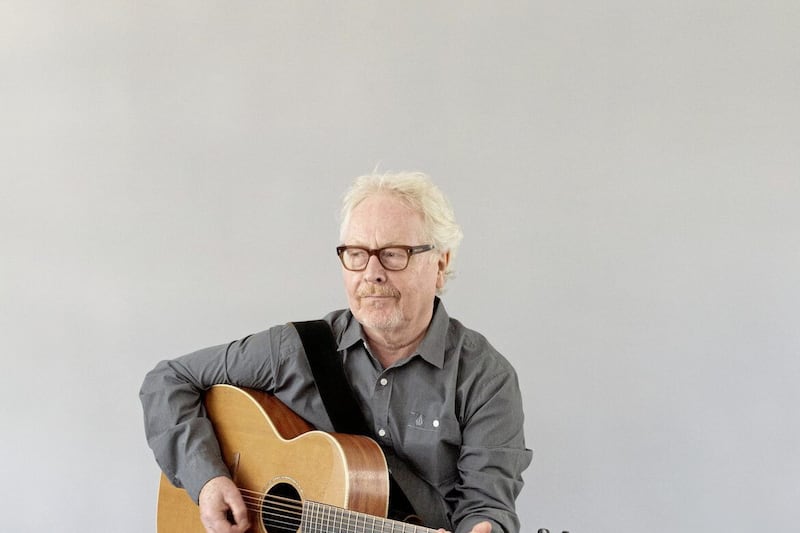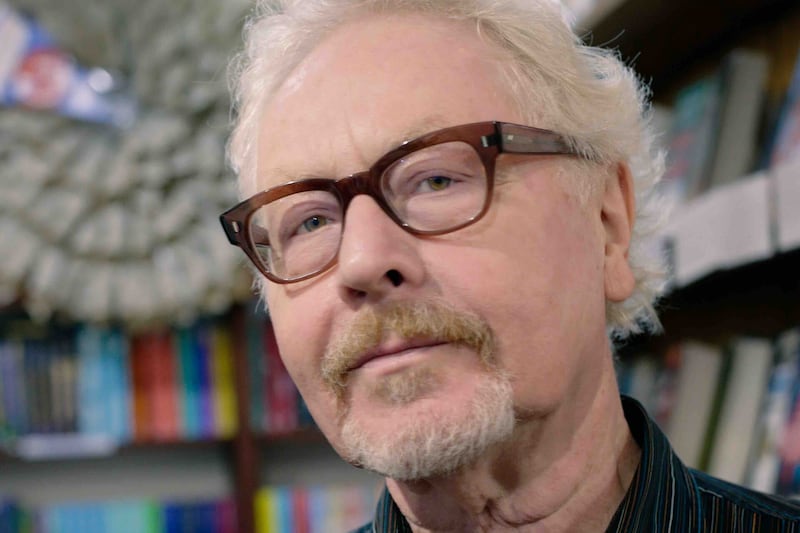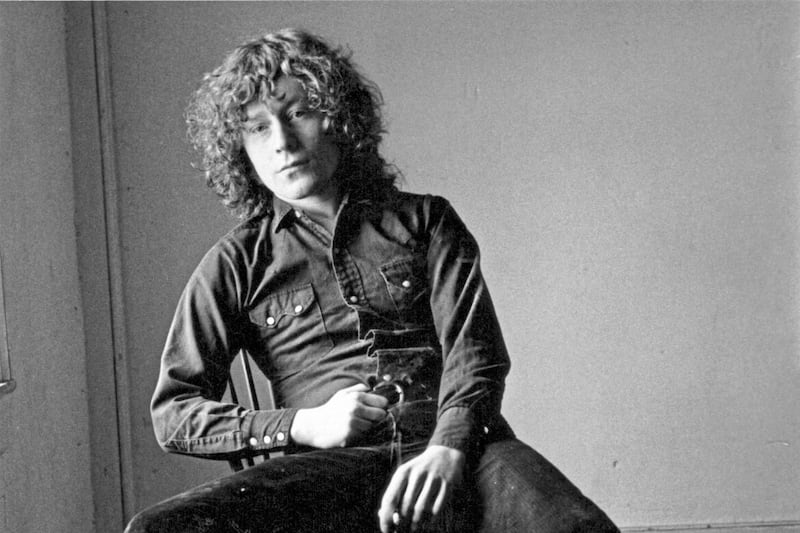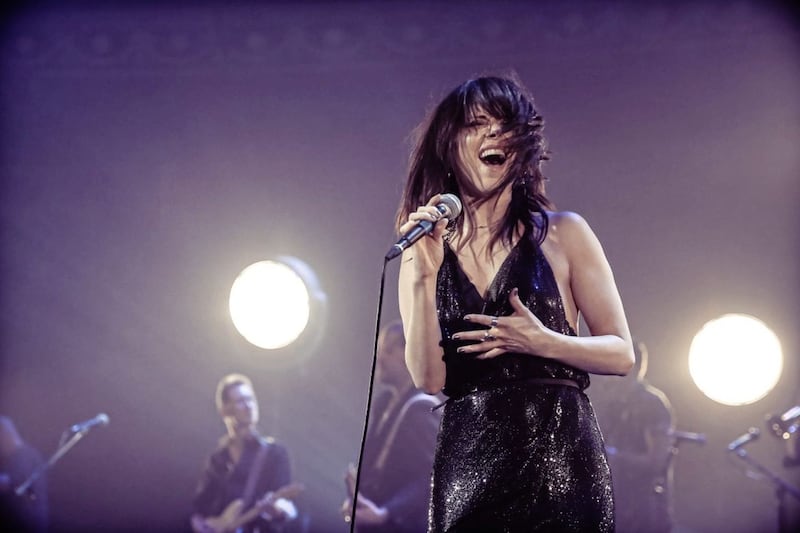IT is Saturday, May 30, 1987 and Paul Brady is having a "surreal" moment at a Tina Turner concert in Dublin.
With Turner having already belted out his spirited Steel Claw on her comeback album of 1983, Private Dancer, later recording Paradise is Here, the Strabane-born singer-songwriter was "kind of automatically" extended an invite to her gig.
Then the surreal thing happened. While standing at the sound desk, Turner's manager, Roger Davies, turns to him and says: "D'ya wanna get up with Tina?" Next song on the list happens to be Paradise and Brady feels a push on his back and suddenly he's out there, singing with Tina Turner in front of 30,000 people.
Reflecting on this unscripted duet, the multi award-winning multi-instrumentalist – due to pick up another accolade, The Oh Yeah Legend Award at the Northern Ireland Music Prize event at the Ulster Hall this month – says it was a "surreal moment in a surreal career" marked by "lucky" breaks and serendipitous encounters.
"Singing with Tina certainly, absolutely, definitely, was one of the highlights of my life in terms of just sheer fun and excitement," enthuses Brady, chatting amicably down the phone line from his studio in Dublin.
It is interesting that out of all the seminal moments in a career extending over six decades, skilfully spanning traditional folk, rock and pop and featuring musical collaborations with Bob Dylan, Eric Clapton, Mark Knopfler of Dire Straits, the Everly Brothers, Joe Cocker, Carole King... – the list goes on and on – that he chooses to pull out this one as "one of the most magical days" of his career thus far (at 76 he is still performing and recording). But, as he noted in his 2022 memoir, Crazy Dreams, Turner was a "goddess" whose party he had been happy to crash.
In contrast, life now as a septuagenarian is appreciated for its small, ordinary moments – he is a doting grandfather of five, with three of his grandchildren living with son Colm and his wife in New Zealand – but the days of spontaneous duets with pop superstars and flying off in Learjets (with Eric Clapton in support for his 1983 European tour) are still up there as memories to relive every now and then, not to mention fascinating stories to tell the grandkids.
"I don't particularly mind being this age," he says, brightly, "but, I mean... the body isn't as it used to be... there are bits falling off here and there, but my main feeling at this stage would be that I would like to have the opportunity to spend more time with family and unfortunately, neither of my children, Colm and Sarah, live in Ireland – my grandchildren are in England and New Zealand, so that's a little bit hard to take because in your mid-seventies, it is nice to be surrounded by family."
He has had operations on both hands and is currently recovering from a surgical procedure on his knee, but the former Planxty musician who started out playing piano in a Donegal hotel as a "callow" 15-year-old for £4 a week, later joining Irish folk band The Johnstons before going solo, says one of the benefits of being at the stage he's at is the fact he's "no longer looking to impress anyone".
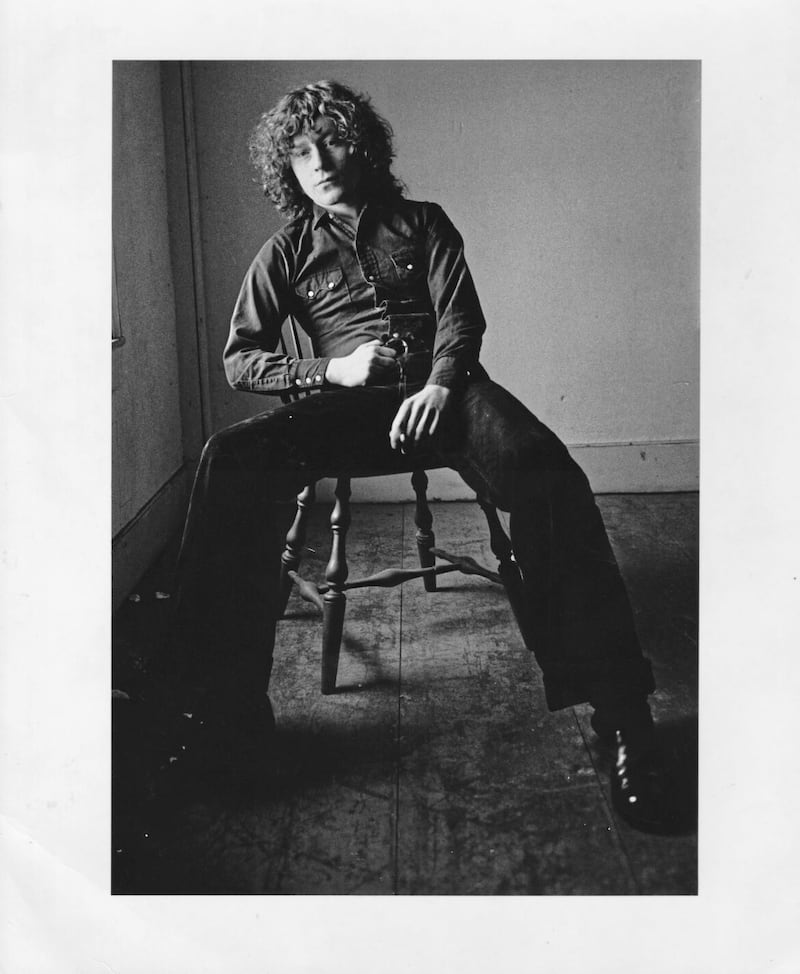
Awards are always welcome, though, and "while not suffering hugely" from 'imposter syndrome', the musician who once acquired the reputation in some quarters of being "a grumpy bollix", admits to still finding it difficult knowing how to present himself in such situations.
"I am looking forward to the Belfast event hugely, but I still find it hard knowing how to present myself in award situations," reveals the Arthur McBride and Lakes of Pontchartrain writer and singer with due modesty.
"But, it's always nice to be acknowledged by your own people from Northern Ireland."
There is no sign of the aforementioned 'grumpy' persona when we chat and Brady is generous with his time, but while referring to this self-penned appellation in Crazy Dreams, he says any perceived grumpiness in earlier years was due to frustration and feeling deeply unhappy.
He has always wrestled with a feeling of not quite 'fitting in' which goes right back to his days at University College Dublin (UCD) when he skipped lectures without his parents' (both primary school teachers) knowledge. He muses with good humour, that many years later, in a ceremony that would have given [parents] "Mollie and Sean bragging rights" back in the days of his thwarted academic career, he was conferred with an honorary D. Litt from the University of Ulster in 2009. He had "finally graduated".
Read more:Crazy Dreams - getting to know Paul Brady
Musical conflicts and recognising a "lone wolf" within also caused some anguish back in the day and led, eventually, to the setting up of his own record label, PeeBee Music in 2001. He became tired of "the appropriation of music for ulterior motives" and has sought to plough a "terminally non-aligned furrow" since.
Tellingly, he writes in his autobiography: "I have always felt caught, suspended somewhere between music as a serious business that feeds the head, heart and soul and music that's instantly accessible, but equally and immediately forgettable; music that is a so-called 'work of art' and music that is disposable entertainment. I relate to both."
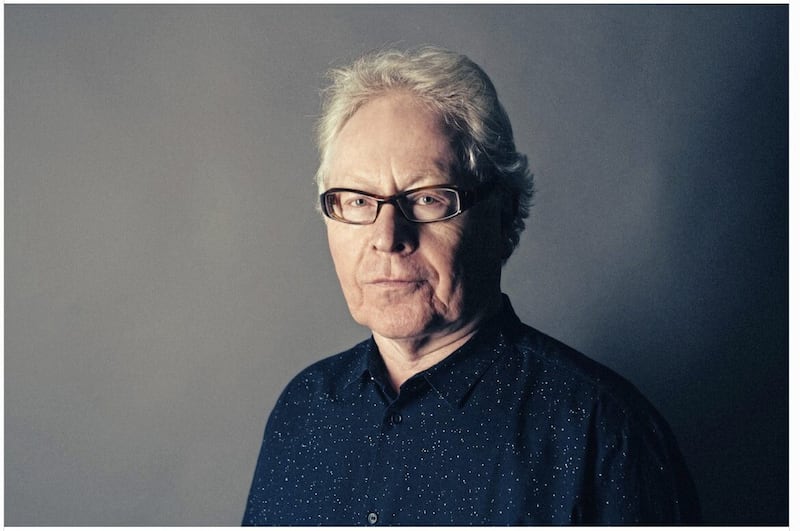
Talking about this now, he feels privileged to have straddled the two distinctly different musical genres. "I always hung around the periphery of the silly pop world and the serious rock and folk world, you know," he explains. "I saw the good in both of them and I had a facility for both which was rare.
"I spent more than a decade in the folk/traditional scene and I was one of the only people in it who could play pop and blues too, so that was a very unusual state and I feel very lucky that I had both those talents."
As well as releasing numerous successful albums of his own, Brady enjoyed major success as a songwriter – "nearly 100 covers over all" – and has written for television (adding mandolin and tin whistle to Mark Knopfler's soundtrack for 1984 film, Cal) as well as appearing on it in RTE's 2002 series, The Paul Brady Songbook.
Read more:Paul Brady: Collaboration with New Yorker Theo Katzman is keeping me young
Regrets? Yes, he's had a few, but hardly worth a mention. "Like anybody in the business of pop rock music, you kind of look towards the globe and America in particular," reflects Brady, a qualified scuba diver who still finds solace underwater. "I, like many, many people, had a 'go' at America but I didn't become anything huge there. That was a small regret 20 years ago but now I couldn't give a sh*t."
There were never "any rules" in music in his day, never any set way of advancement, so it always felt "a kind of mystery" the path his career took him down in Ireland and beyond.
"I feel very lucky, to be honest," he concludes. "I don't know if I would do anything differently. A huge amount of serendipity was involved and most of what happened to me in my career was by accident, but I always tried to write songs true to myself and songs that reflected the world that I lived in a way that was honest and, hopefully, uplifting."
Paul Brady will receive the Oh Yeah Legend Award at the Northern Ireland Music Prize night at the Ulster Hall on November 15
ulsterhall.co.uk/what-s-on/northern-ireland-music-prize
ohyeahbelfast.com
paulbrady.com



